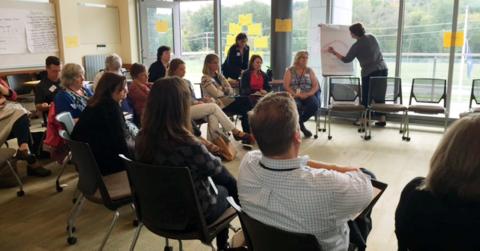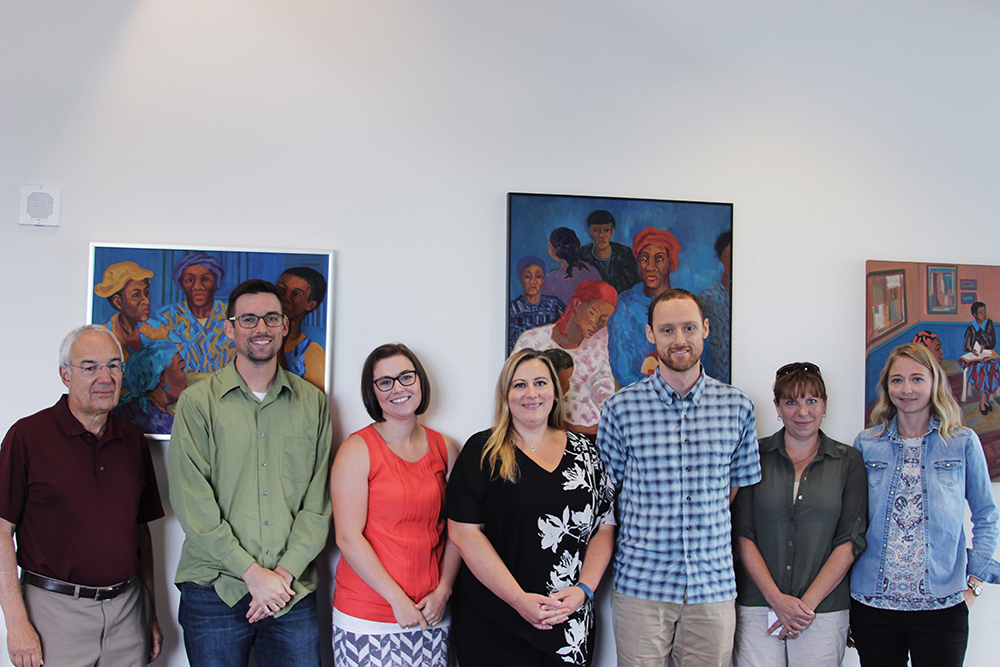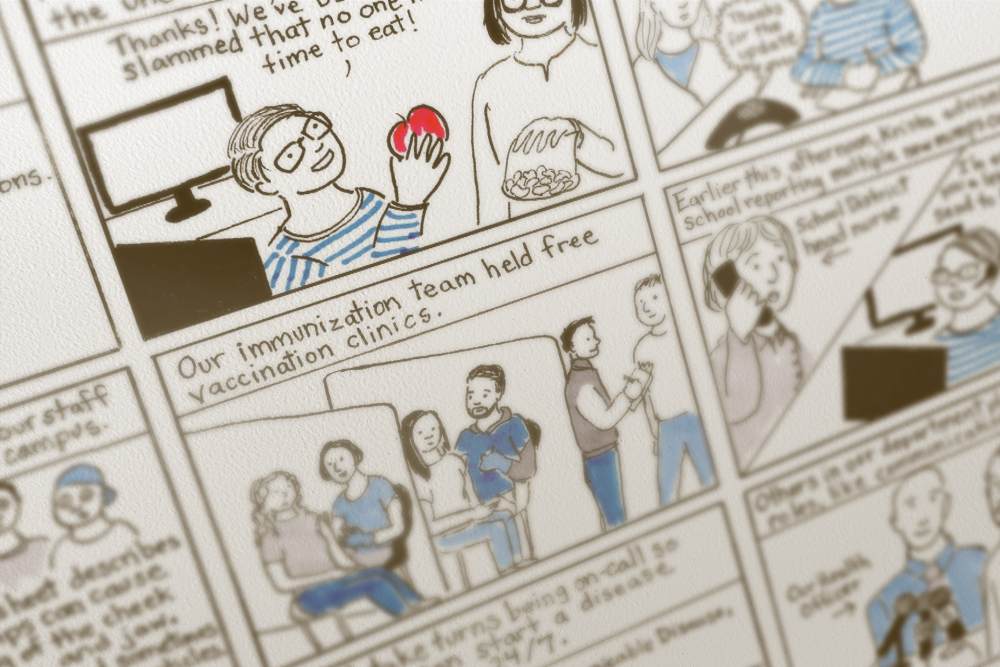
Public health professionals in Vermont practicing the Population Health Innovation Lab curriculum. Photo credit: Public Health Institute.
NWCPHP and the Public Health Institute will facilitate a “learning laboratory” to support local public health departments in answering difficult questions about financial sustainability and core services.
The changing health care landscape surrounding the Affordable Care Act is challenging health departments around the country to reconsider how best to protect the public’s health. Should they discontinue their clinical services and focus more on “upstream” activities like policy development? If so, how much more? What if no other providers offer services in their communities, particularly in rural areas? How are all of these things funded?
For the next two years, NWCPHP and the Public Health Institute will lead a new project, dubbed the “learning laboratory,” to help local public health departments consider these questions. Using a combination of background research and innovative facilitation methods, the project team and participants from around the country will identify solutions to help local health departments successfully transition toward maximizing their role in population health strategies. The project gets its nickname from its iterative approach to problem solving and collaborative learning, and the hope that the process will incubate replicable strategies for how to make these types of large-scale changes.
“Organizational shifts as big as these take a lot of time and practice, and require leaders to gain skills and knowledge that cannot be learned in a single training,” said NWCPHP Training and Outreach Manager Barb Rose, MPH. “We’re excited to delve deeper with our partners on these weighty topics.”
The project’s main activities will include developing case studies of health departments that have successfully transitioned away from offering varying levels of clinical services; recruiting teams of public health leaders and their community partners to tackle these issues; and creating toolkits and additional resources to help others successfully navigate these changes.
Using the Public Health Institute’s Population Health Innovation Lab frameworks, methods, and curriculum makes this endeavor different from more traditional approaches to training. The curriculum requires participants to frame a problem as a “design challenge” for which they are seeking a solution. Teams of community colleagues work together to identify a shared purpose and common tools to develop solutions, often reframing their challenges as opportunities.
Facilitators from the Public Health Institute will use this framework to help teams of public health and health care leaders explore organizational assets, readiness, and collaborative decision-making strategies, all of which will be put into place to make changes in their local health systems. The learning laboratory will include in-person and distance events that center on “action learning” where small groups tackle real-world problems, then go back and repeatedly test their ideas in their organizations. NWCPHP and the Public Health Institute will also facilitate mentorships between health leaders who have successfully transitioned and those just beginning the process.
“Our approach has resulted in participants better understanding the systems they work in, allowing the groups to come together in a more cohesive manner. I am excited to apply our practices and frameworks to this issue and identify solutions these communities, as well as others, can use,” said Sue Grinnell, MPH, Director of Business Strategy and Technology at the Public Health Institute’s Population Health Innovation Lab.
Recruitment for public health and health care teams to participate in the learning laboratory will begin in fall 2018.


